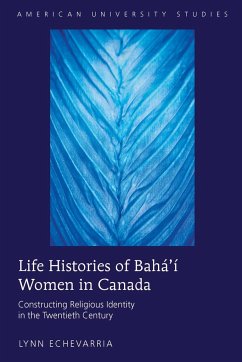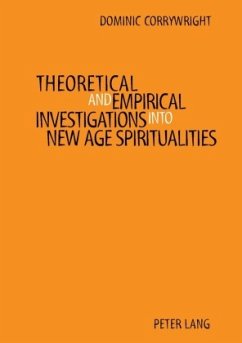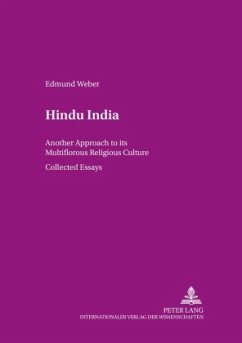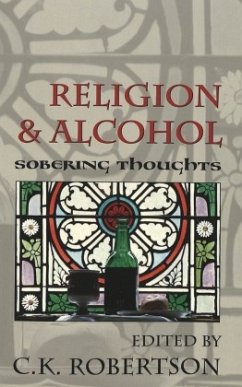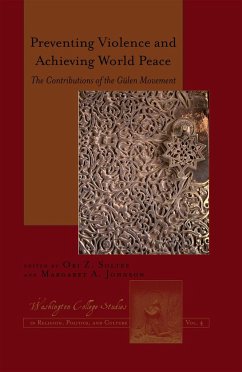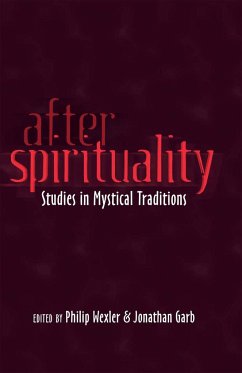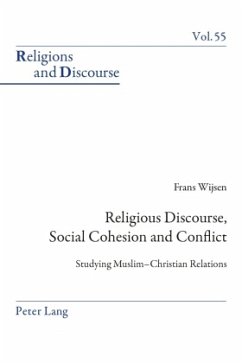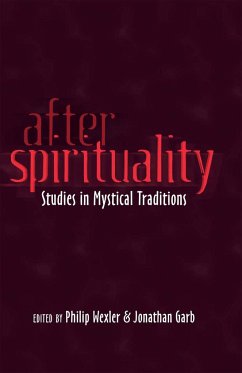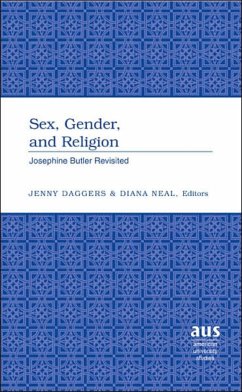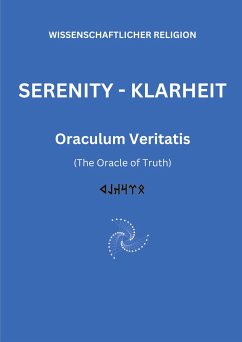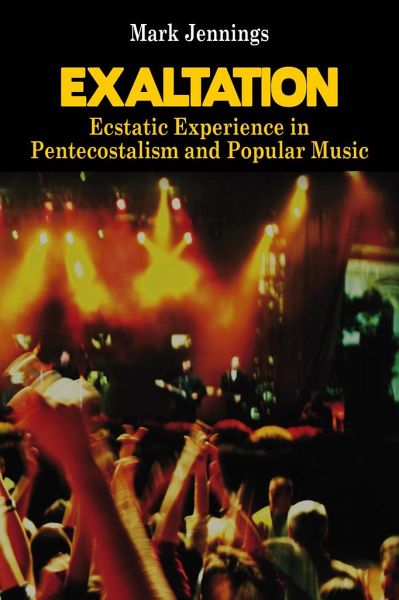
Exaltation
Ecstatic Experience in Pentecostalism and Popular Music
Versandkostenfrei!
Versandfertig in 6-10 Tagen
92,70 €
inkl. MwSt.

PAYBACK Punkte
0 °P sammeln!
Based on two richly described case studies - a Pentecostal worship service and popular music festival - this book draws on sociology, theology and religious studies in order to understand the significance of ecstatic experience in these contexts. Interviews with performers in both settings, together with detailed first person accounts of worship services and live performances, combine to create a picture of the role of music, performance and space in catalysing ecstasy. Drawing on the work of thinkers as diverse as Michel Foucault, Emile Durkheim, Victor Turner and Friedrich Schleiermacher, th...
Based on two richly described case studies - a Pentecostal worship service and popular music festival - this book draws on sociology, theology and religious studies in order to understand the significance of ecstatic experience in these contexts. Interviews with performers in both settings, together with detailed first person accounts of worship services and live performances, combine to create a picture of the role of music, performance and space in catalysing ecstasy. Drawing on the work of thinkers as diverse as Michel Foucault, Emile Durkheim, Victor Turner and Friedrich Schleiermacher, this book demonstrates that religious and non-religious disciplines, paradigms and understandings can work in a complementary fashion to help us understand the significance of phenomena such as music and ecstatic experience.
Ultimately, the argument put forward in the book is that ecstatic experience takes place in both religious and secular settings and is best understood by both theistic and non-theistic approaches, working together. The ecstatic experience common to both contexts is theorised as 'proto-religious phenomena' - the kernel from which religion may develop.
Ultimately, the argument put forward in the book is that ecstatic experience takes place in both religious and secular settings and is best understood by both theistic and non-theistic approaches, working together. The ecstatic experience common to both contexts is theorised as 'proto-religious phenomena' - the kernel from which religion may develop.





